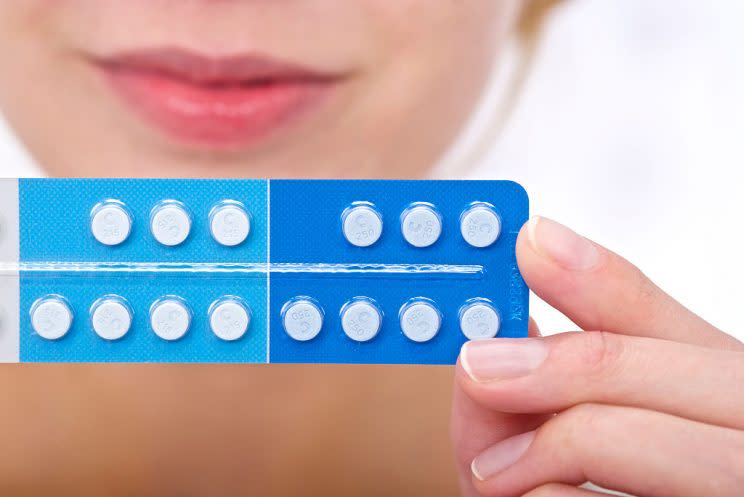If You Think the Pill Kills Sex Drive, You Should Read This New Study

There’s a lot that’s been said about oral contraceptives of late that’s made the pill a pretty bitter one to swallow. It supposedly wreaks havoc on your sex drive. And it might be making you depressed.
But with nearly 11 million women in the U.S. relying on it for protection, it can’t be all bad, right? And thankfully, a new study has found that good news we’ve been wanting so badly — the pill doesn’t kill your libido.
That’s according to researchers from the University of Kentucky and Indiana University, who found that, like many issues involving the human body, it’s not a simple formula of “go on the pill, lose your desire for sex.” The full findings were published in The Journal of Sexual Medicine.
“Women tend to have a lot of ideas about side effects of the pill when we don’t actually have a lot of data to support many of them,” lead author Dr. Kristen P. Mark tells Yahoo Beauty. “A lot of the prior literature has looked at individuals who may or may not be partnered, and we know that a large group of oral contraceptive users are in long-term relationships.”
First, some basics — as we said, oral contraceptives are the most widely used form of birth control in the United States, and it’s generally accepted as common knowledge that remaining baby-free comes at the high cost of losing your sex drive. Science, unhelpfully, hasn’t shed much light into the subject, because there just haven’t been enough studies on the subject that look at all aspects, whether that’s the relationship status of the woman or by having a control group of women on non-hormonal birth control.
Mark and her colleagues carried out two studies to look at how various contraceptives affect women’s libido in relationships with men, with a specific focus on long-term relationships. They looked at how more than 900 women on three different types of birth control — oral contraceptives, other hormonal contraceptives like the patch and certain IUDs, and non-hormonal birth control — acted in terms of desire for their partner on their own (solitary) and with their partner (dyadic).
The results were surprising — it’s not so much about the type of birth control that a woman is on as much as her relationship status. Women who were on the pill reported a higher level of desire with their partner, compared with women on non-hormonal contraceptives, who said they felt friskiest on their own.
(And, for what it’s worth, the desire of their male partners pretty much remained constant no matter what form of birth control their S.O. was on).
Of course when it comes to matters of the heart (and body), there are always a ton of variables at play, which is why Mark and her team of researchers contextualized their results based on the subject’s age and relationship status.
“Overall, I think it is important to consider context,” Mark tells us. “Yes, hormones play a role in sexual desire, but so do so many other things! So, ignoring the context and trying to pinpoint one thing to attribute low (or high) desire to is shortsighted. We as scientists are beginning to put more pieces together to further understand sexual desire.”
So, depending on your relationship status, it could be good (or bad) news that desire is less about contraceptive and more about context. What we do know for sure, Mark says, is that this “is one piece of a very complex puzzle.”
